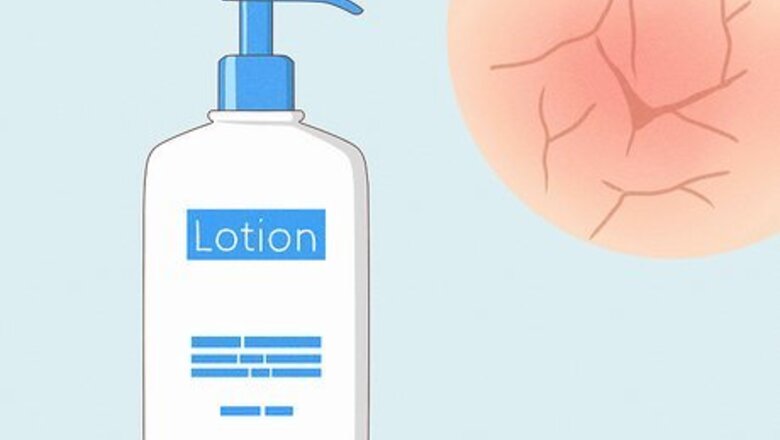
views
- Itchy breasts and nipples are usually caused by non-serious issues, like dry skin, hormonal changes, or detergents.
- Treat your itchy breasts by moisturizing and hydrating your skin with lotion.
- Address any underlying skin conditions, like fungal infections or eczema, to get rid of the itchiness.
- In rare cases, itchy breasts may be a sign of health problems. If you’re concerned, make an appointment with your doctor.
Dry skin
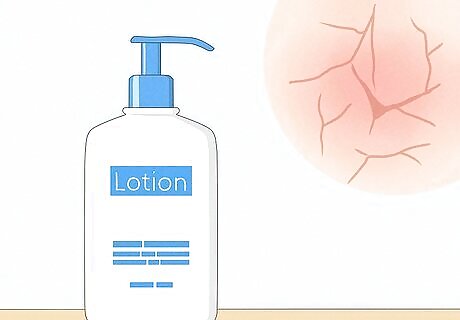
Use lotion to soothe dry, itchy skin. During dry weather, the skin on your breasts and around your nipples may become chafed and itchy. If that’s the case, use a moisturizing lotion or ointment to hydrate your skin and stop the itchiness. Thick, creamy moisturizers, such as Eucerin and Cetaphil, may be more effective at moisturizing than thinner lotions. Petroleum jelly is also thick enough to moisturize your skin well, and is very cheap. To prevent further itchiness, take warm showers instead of hot showers. Hot water dehydrates your skin and can make itching worse.
Fungal infection
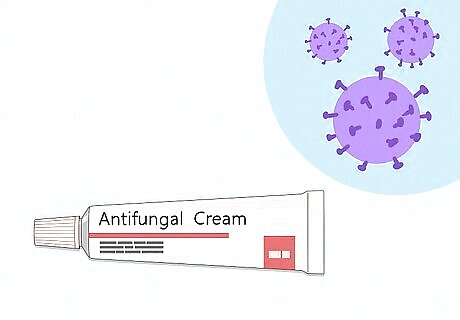
Treat fungal infections with antifungal cream. If you have a red, itchy rash underneath or on your breasts, you may have a fungal infection. Treat the area with an over the counter antifungal cream daily, and be sure to keep your breasts clean, dry, and sweat-free. Fungus tends to accumulate in dark, moist parts of the body. The space underneath your breasts is the perfect breeding ground for fungus, especially during hot weather. If you use antifungal cream for 1 to 2 weeks and see no improvement, make an appointment with your doctor. They’ll be able to diagnose your rash and prescribe something stronger if need-be.
Pregnancy
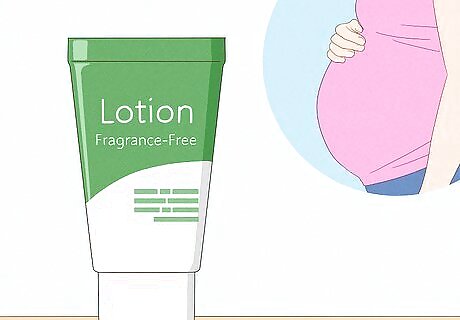
Moisturize your breasts to soothe itching during pregnancy. When you become pregnant, the hormonal changes in your body cause your breasts to swell, which can make your breasts or nipples very itchy. To combat this itchiness, apply a fragrance-free lotion to your breasts and nipples every day. Be sure to wear a comfortable, well-fitting bra to avoid chafing or rubbing your nipples further. Always apply lotion and ointment after showering to lock in hydrating and prevent further itchiness. For extreme itching, apply a hydrocortisone cream to your breasts. Breastfeeding can also cause nipple pain and itching.
Menstrual cycle
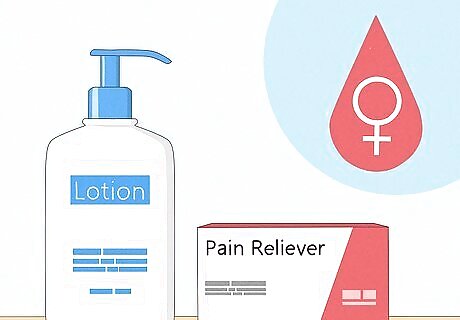
Itchy breasts could mean you’re about to start your period. While most of us experience pain right before our period, that pain can sometimes present as itching or discomfort. If you notice that your breasts or nipples itch a few days prior to your period, it’s just the hormones in your body fluctuating. Use lotion to hydrate your skin, and take a pain reliever to combat discomfort. Puberty and menopause can also cause nipple and breast itching due to the hormonal changes that come with them.
Soap or detergent
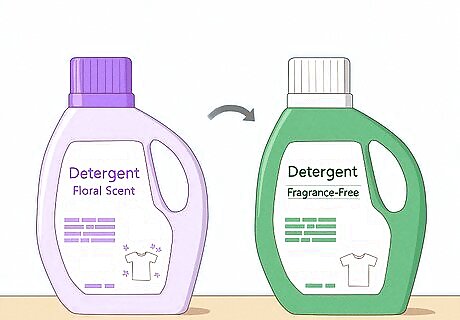
Switch to fragrance-free products to avoid allergens. If you’re trying out a new laundry detergent or body wash and your breasts are itching, you may be having an allergic reaction. Look for fragrance-free soaps and detergents that won’t irritate the sensitive skin on your breasts or nipples. In the meantime, take an antihistamine to reduce swelling and itching on and around your breasts. Until your itchiness goes away, soothe your skin with a fragrance-free lotion.
Friction
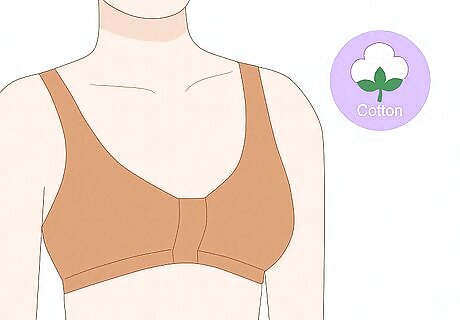
Wear loose, cotton undergarments for fast relief. Chafing can cause nipples and breasts to itch. If you often wear tight undergarments or bras, switch to cotton bras that are breathable. Apply an anti-chafing cream to reduce friction and soothe your skin. Be sure you’re wearing the right size bra, too. A poorly fitted bra could be putting pressure on your breasts or nipples, causing them discomfort. Measure your bra size at home before heading to the store and picking out a new bra.
Eczema
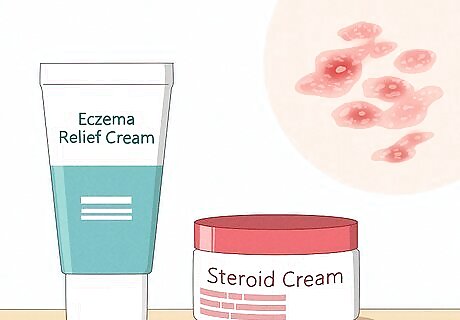
Treat eczema with thick lotion. You can also try an over-the-counter steroid cream. Eczema is a condition that causes dry, itchy skin in many parts of the body. If you have eczema elsewhere, you may be experiencing eczema on your breasts. Apply thick salves to your breast once a day to soothe and hydrate your skin. If you have never been diagnosed with eczema before, make an appointment with your doctor. They can look at your breasts and diagnose the issue to be sure you’re treating the right condition.
Psoriasis
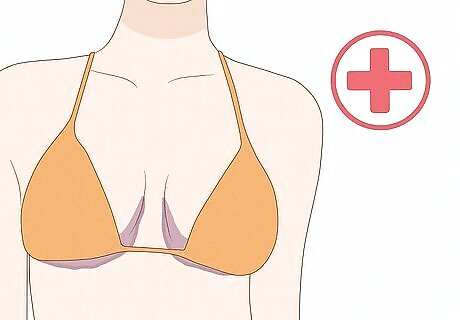
See a doctor to treat psoriasis. Inverse psoriasis, which presents on the groins, armpits, or breasts, is usually purple in color and may be itchy. If you’ve noticed any spots on your breasts that are dark or discolored, make an appointment with your doctor. They can prescribe you topical medication to reduce itching and discomfort. You’re much more likely to develop inverse psoriasis if you have psoriasis on other parts of your body.
Hypothyroidism
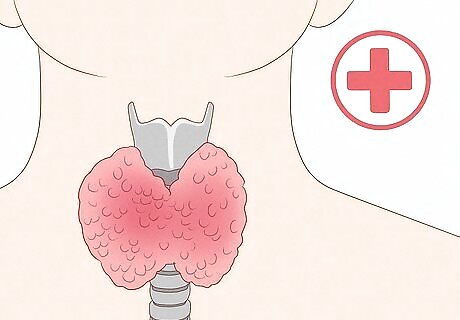
Make an appointment with your doctor to treat an overactive thyroid. Hypothyroidism has many symptoms, one of which is itchy skin that can present on the breasts or nipples. If you think you have hypothyroidism, make an appointment with your doctor and ask them to do blood work. If you do have hypothyroidism, your doctor will likely prescribe you a hormone therapy treatment. Other symptoms of hypothyroidism include: Fatigue Frequent bowel movements Sleep problems Irregular menstrual cycle Weight changes
Medication
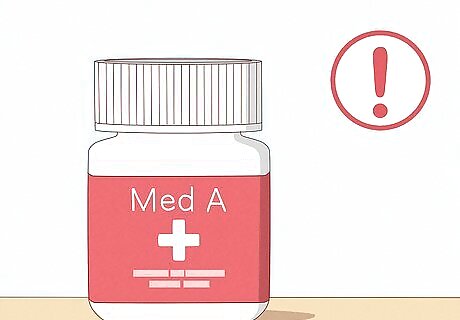
Check the side effects of your medication to see if it causes itchy skin. If you’ve just started a new prescription or changed medications, your itchy breasts could be a side effect of that. Talk to your doctor about your medication to see if itchy skin is a possible side effect. Medications like cancer treatments, aspirin, blood pressure medication, and opioids are known to cause itchy skin. If your itchy skin is caused by your medication, you can work with your doctor to adjust the dosage and lessen the side effects.
Paget’s disease
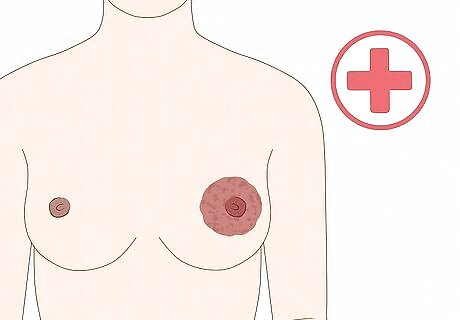
Paget's disease is very rare, developing in 1% to 4% of all breast cancers. Paget's disease is a condition that looks very similar to psoriasis or eczema of the nipple and may be itchy. Paget’s disease typically only affects 1 breast or nipple, and you may also experience pain or discharge. If you believe you have Paget’s disease, make an appointment with your doctor for a diagnosis. Most people with Paget's disease of the breast have at least one tumor in the breast, and about half of them have a lump that can be physically felt during a breast exam. Paget's disease is diagnosed by tissue biopsy. It is sometimes diagnosed late since the symptoms present like common skin conditions. Treatment of Paget’s disease typically includes surgery and radiation therapy.
Cancer
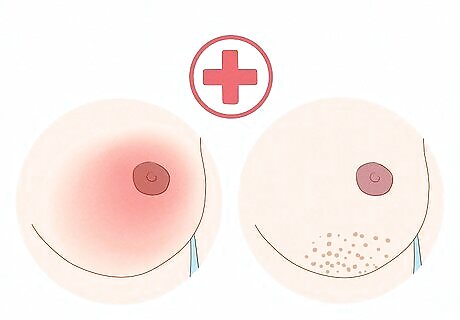
In rare cases, itchy breasts may be a sign of inflammatory breast cancer. This type of cancer is very rare. It occurs in only 1% to 4% of all types of breast cancer, and often presents with itchy breasts. Make an appointment with your doctor if you experience changes in the skin and breast tissue, pain, swelling, redness, or dimpling of the skin. You may feel a warm or hardened area under the skin, and you may also experience discharge from your nipple. The nipple may also be inverted, or pulled inward.


















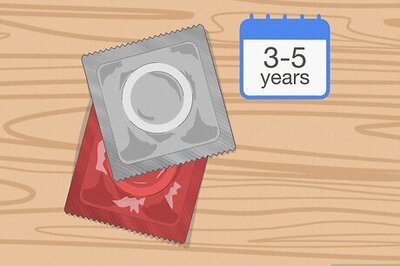
Comments
0 comment